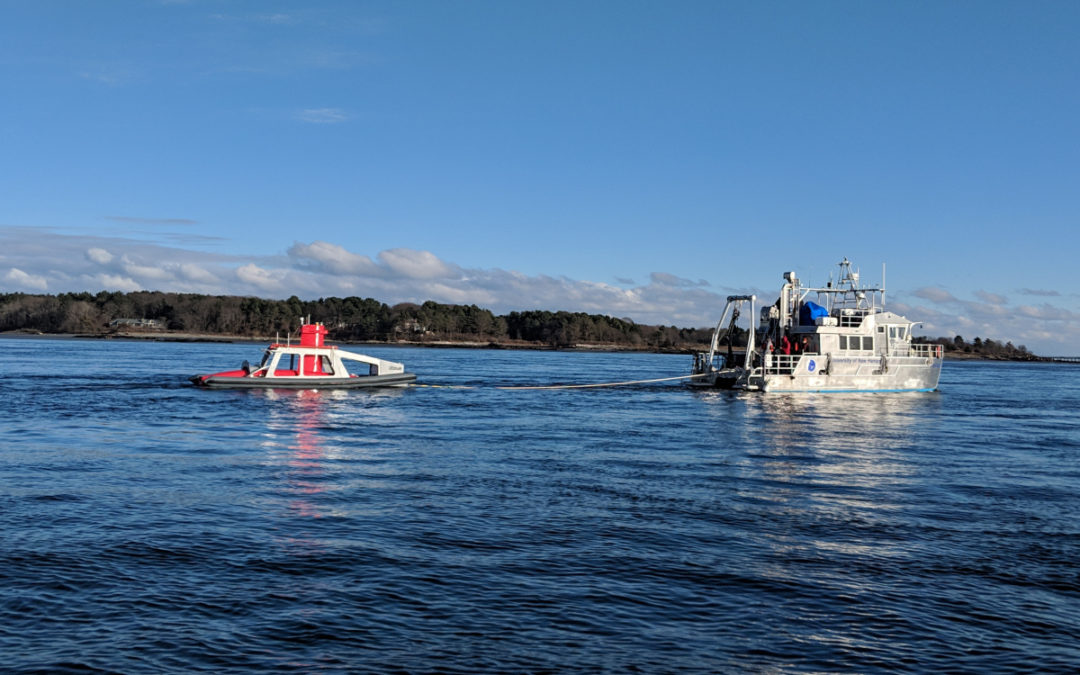From UNH News Service: The University of New Hampshire is one of five ocean science institutions chosen by the National Oceanic and Atmospheric Administration (NOAA) over the next five years to explore an estimated three billion acres of U.S. ocean territory as part of the new Ocean Exploration Cooperative Institute.
Home to the Center for Coastal and Ocean Mapping/Joint Hydrographic Center (CCOM/JHC) for 20 years, UNH will lead the consortium in the development of new acoustic mapping concepts and data processing approaches, building on its leading-edge experience in the application of autonomous surface vessels for seafloor and water column mapping and sharing its renowned data visualization skills.
“Few people understand just how little of the ocean has been mapped and explored,” said Larry Mayer, director of UNH’s Center for Coastal and Ocean Mapping and principal investigator for UNH on the consortium. “The support of NOAA in creating the cooperative institute and the respective strengths of the member institutions will help us address this critical gap in our understanding of three-quarters of our planet. It will inevitably lead to many new discoveries that will help us better understand, manage and sustain the ocean and the vast resources it has to offer.”
Led by the University of Rhode Island, the consortium includes UNH, the University of Southern Mississippi, the Woods Hole Oceanographic Institution, and the nonprofit Ocean Exploration Trust. Members will work with NOAA’s Office of Ocean Exploration and Research to explore the acres of submerged ocean territory to strengthen the Blue Economy, aid responsible resource management and promote a greater scientific understanding of the nation’s vast underwater ocean territory, known as the Exclusive Economic Zone. The consortium is supported by a five-year $94 million award from NOAA.
“With the Blue Economy expected to more than double its contribution to the U.S. economy and employ 40 million people by 2030, NOAA’s new cooperative institute will be on the front lines helping NOAA explore and characterize the three billion acres of U.S. ocean territory,” said retired Navy Rear Adm. Tim Gallaudet, assistant secretary of commerce for oceans and atmosphere and deputy NOAA administrator. “The Blue Economy relies on data and information to inform science-based management and sustainable use of our ocean resources in support of economic growth, food security and our national security.”


 Return to the Concord Monitor
Return to the Concord Monitor